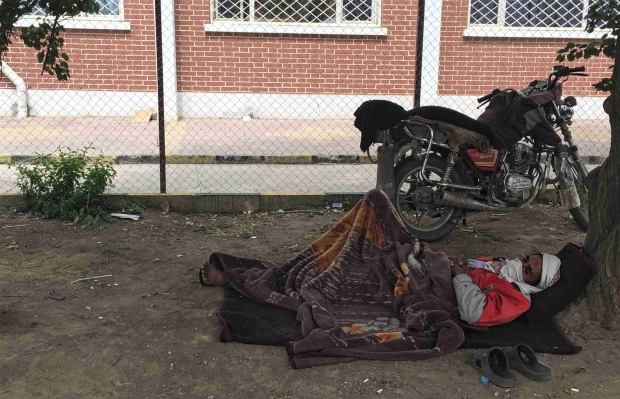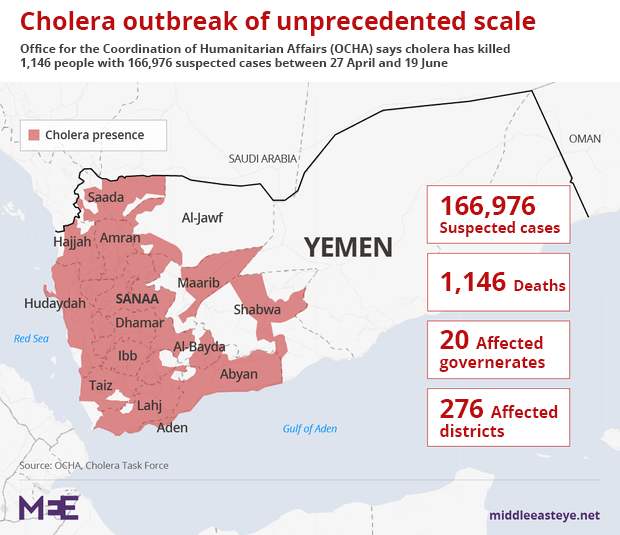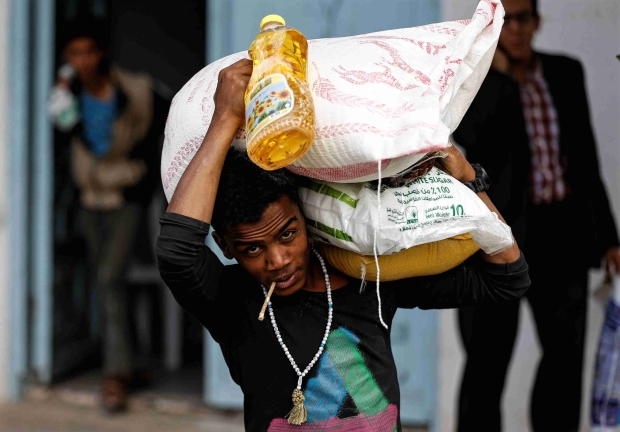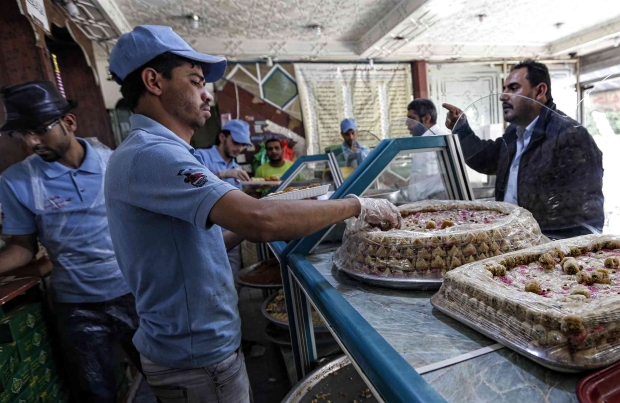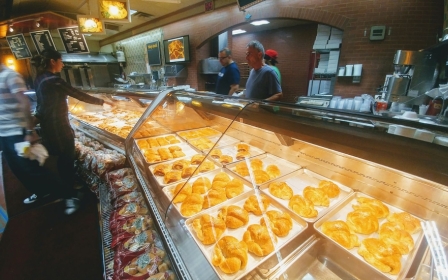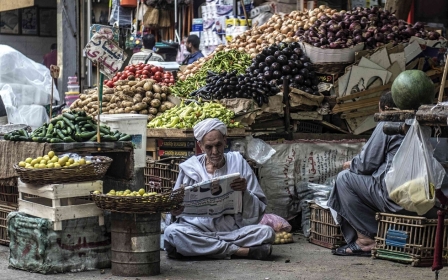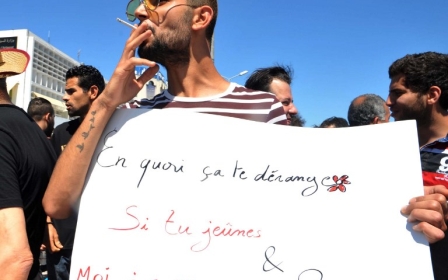Ramadan in a time of cholera: How Yemen is marking holy month
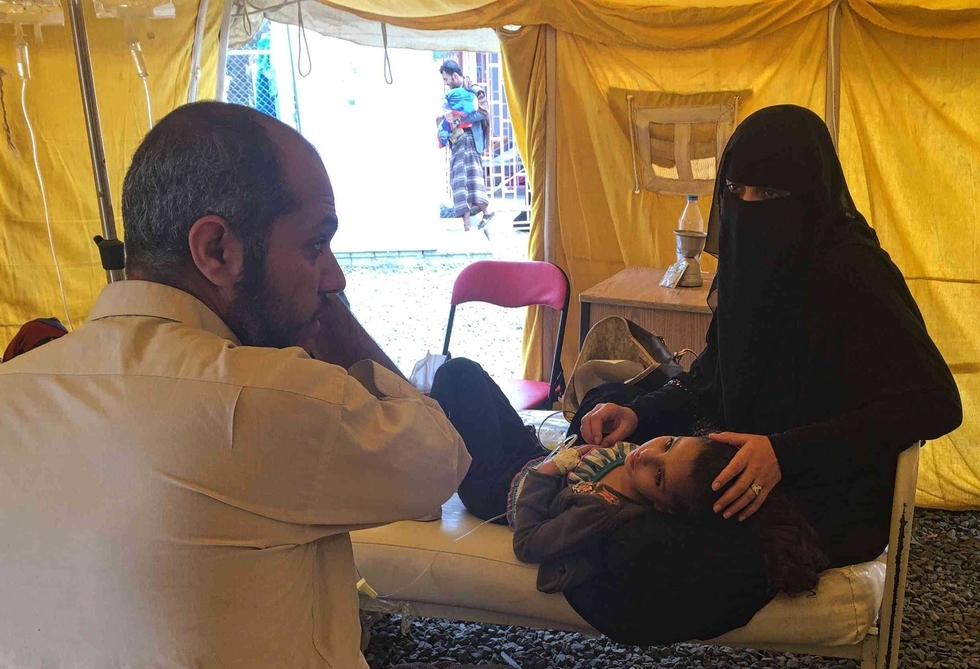
SANAA – Every year at the start of Ramadan, Enas Dhafiri followed the same rituals: cooking meals for the breaking of the fast; buying sweets for her children and staying up late to watch TV with the rest of the family, including Bara'ah, eight.
This year it's different.
The family cannot afford traditional Ramadan meals. The TV stations have either shut down or do not have the budget to show special programming. And Bara'ah lies on a bed in the al-Sabeen camp for cholera patients in Sanaa, while her mother watches, waiting for any good news from the doctors.
“The recovery of my daughter from cholera is a priority,” Dhafiri says. “We have already missed celebrating Ramadan, we are going to lose celebrating Eid. I only want to see my daughter recover from cholera, and then we can celebrate."
Dhafiri's husband is a teacher and, like all public employees, he has not been paid for nine months because the government has stopped some state salaries due to the war.
Instead the family have relied on philanthropists to try and save the life of their daughter, paying for her to attend the camp, which is 50km from their home in the Bani Hoshaish region. In this area, cholera and famine are rife, but there are no medical centres to treat victims.
Dhafiri tells MEE: "We welcomed Ramadan without a proper celebration or familiar foods as usual, because the conditions are not the same as last year. Cholera has made it worse.”
Dozens of parents like Dhafiri have come to al-Sabeen, each with a child suffering from cholera. None feel that they can celebrate the holy month this year.
There are few signs of Ramadan here, save for the sunset call to prayer when everyone gathers for iftar, the large meal associated with breaking the fast.
'The recovery of my daughter from cholera is my priority. I only want to see my daughter recover from cholera, and then we can celebrate'
- Enas Dhafiri
The camp itself is a collection of yellow and beige tents near al-Sabeen Hospital, created to isolate the spread of cholera, a highly infectious condition, from the other medical facilities. Doctors and medical staff move from shelter to shelter, avoiding the guy ropes. There is no floor as such, just gravel. Patients lie in beds under canvas or else on bare earth outside, shaded by trees. Their families try to fast but there is nowhere for them to sleep during the day, as they customarily do. So they suffer.
Nurses and the patients' families try to sterilise the camp, and remove the smell of vomit and diarrhoea that permeates everywhere. Parents pray to Allah for their loved one’s lives, creating an air of spirituality. When a new patient arrives at the camp, the relatives of those already there welcome them as if they were from the same family, helping them find a fresh bed.
The parents of Ayman, four, brought their son from al-Haima in Sanaa province, about 60km from the camp, six days ago. Already his condition seems to have improved. "I could not pray to Allah as always this Ramadan,” his mother says, “but Allah may forgive me because I am busy looking after my child."
Dangerous outbreak
Cholera has tightened its grip on Yemen since Ramadan last year.
Jamie McGoldrick, UN humanitarian coordinator in Yemen, said at a press briefing in Amman in mid-June that relief efforts were struggling because a $US2.1 billion aid package was still only 29 percent funded.
"Time is running out to save people who are being killed or being starved, and now you have cholera as well adding to that complication.”
For doctors and imams, the priority is saving life – not religious observance.
Doctor Ibrahim al-Adimi, who works in al-Sabeen camp, says: "Patients suffering from cholera need to compensate for lost liquids. So we try to give them as much solution as is possible. Patients should definitely not fast. If a patient suffering from cholera were to fast, he or she would die in hours."
Mohamed al-Ashqar, imam of Abu Obaida Mosque in Sanaa, says that Allah also advised against fasting in these circumstances.
"Allah does not want to torture us, rather he wants us to feel [empathy] with the suffering of poor people, He gives permission for sick people not to fast."
Instead, followers usually fast when they have recovered.
Food crisis
It’s not only the families of cholera victims who are not celebrating Ramadan this year. Many poor families hit by the war and the economic crisis have stopped observing the holy month and are now struggling to secure food and basic commodities.
Esam al-Harasi, 41, a father of six children in the al-Oshash region, is employed as a building labourer. But work is irregular: he can hardly attend to his family’s most basic needs during the rest of the year.
"I used to work 11 months a year and take a rest during Ramadan to enjoy it with my family,” he says. “But this year I did not work more than 50 days during the whole year. I could not buy any food for Ramadan.
“We have lost the happiness of Ramadan, which has become just like all the other months. The only difference is that we fast.”
Two of Harasi's sons suffer from malnutrition - but he cannot provide them with the vegetables, fruit and dairy products they need to fully recover.
Harasi says: "Usually people stay up at night until morning and eat different kinds of foods during Ramadan. But we sleep early because we do not have either electricity or solar energy to stay up. We eat the same food as we do normally, which is mainly bread and rice."
More than half the population is now having to survive on emergency or crisis levels of food insecurity, according to the Integrated Food Security Phase Classification (IPC). In some provinces, that figure rises to 70 percent.
One of the five pillars of Islam is the payment of zakat to help the poor. But this year, even the well-off find themselves struggling.
'If all Muslims obey Allah, we will not see people starving to death because of hunger. But many Muslims do not pay zakat, which is a main religious obligation in Islam'
- Mohamed al-Ashqar, imam, Abu Obaida Mosque
Ridhwan al-Asbahi, an accountant, receives a salary of $1,000 a month. The monthly average salary in Yemen is $90.
"I know there are many people suffering during Ramadan,” he says, “but I cannot help them.” Instead this year he is only paying zakat for his relatives, including brothers, sisters, cousins. “I can only help my family,” he says.
Ashqar says: "If all Muslims obey Allah, we will not see people starving to death because of hunger. But many Muslims do not pay zakat, which is a main religious obligation in Islam."
Hunger for religion
On the streets of Sanaa, businesses such as clothes shops and sweet stalls – which usually thrive during holy month - are struggling, a sign of how the economic crisis continues to bite.
Ahmed al-Shara'abi usually works as a taxi driver to support nine family members. Each year during Ramadan he usually sells mushabak, a Yemeni sweet eaten at iftar. The holy month is normally the best time of the year for sales of the sweet. But not this Ramadan.
Shara'abi says: "I only do this job during Ramadan. I used to get more than YR7,000 ($28) per day, but this year I hardly manage YR3,000 ($12).
“It’s because there is no demand for mushabak as before. People this year are not buying sweets as they always do.”
'I only do this job during Ramadan. I used to get more than $28 per day, but this year I hardly manage $12'
- Ahmed al-Shara'abi, taxi driver
Inside mosques, anecdotal evidence suggests that there are more worshippers compared to Ramadan last year, especially at evening prayers. The impetus comes from hunger: benefactors provide free light meals for iftar, drawing the poor who would otherwise starve.
Sermon subjects include the virtues of patience amid war, collaboration, even zakat - but many Muslims do not implement those lessons from the sermons in their daily lives.
Dhafiri wants to see more of the financial support which has given Bara'ah a chance of life. If her daughter survives into next year, then the family can eventually enjoy Ramadan and Eid. But if cholera takes the soul of her daughter, then she will never again be able to enjoy holy month.
"I do not want Ramadan to be a bad anniversary in our family and hope that our life can return to as it was before,” she says, “so we can celebrate Ramadan or other occasions.
“The war has deprived us of happiness - and the sources of grief are more than the sources of happiness.”
Middle East Eye propose une couverture et une analyse indépendantes et incomparables du Moyen-Orient, de l’Afrique du Nord et d’autres régions du monde. Pour en savoir plus sur la reprise de ce contenu et les frais qui s’appliquent, veuillez remplir ce formulaire [en anglais]. Pour en savoir plus sur MEE, cliquez ici [en anglais].


